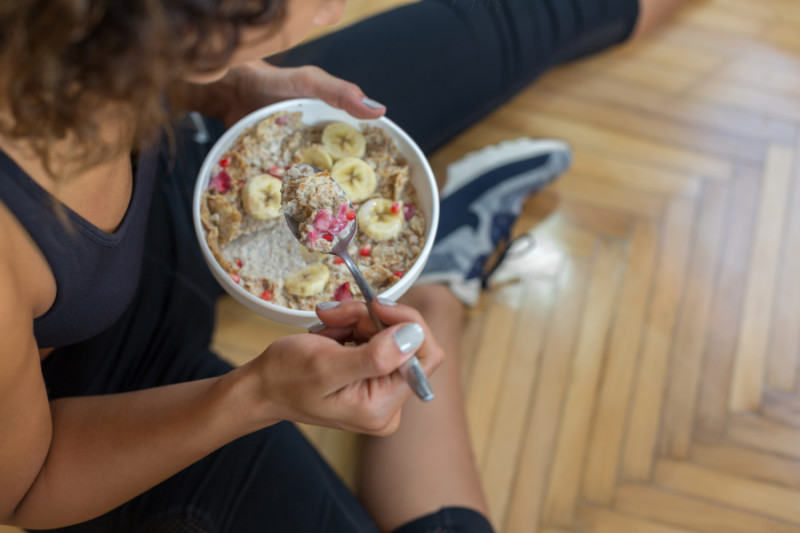By Sheridan Wimmer on February 1, 2021
Workout nutrition
Nutrition tips that will fuel your workouts

Unless you drive an electric vehicle, you know fuel is important for your vehicle to perform well. And whether you’re the type of person who fills up when you’re half empty or when your fuel light comes on, getting fuel for our vehicles is imperative to continue going down the road. Just like our vehicles, our bodies too need fuel to perform well. If you’re training for a 5K, or have other fitness goals, you’ll need the right nutrition to fuel your body for success.
GET THE RIGHT FUEL
One size doesn’t fit all when comparing types of fuel our vehicles run on. A diesel-powered pickup requires a different pump from a Toyota Prius. Gas tanks are different sizes, holding the amount of fuel our vehicles were designed to hold. Our bodies are similar. Fueling our bodies nutritionally is dependent on the individual — that taller, larger-framed body takes a different amount of fuel than a petite, smaller-framed body. Our diets are also dependent on our activity levels.
“What we consume and how it affects us depends on a complex set of variables,” Karen Hanson, a registered dietitian, says. “If you’re training for a 5K or other athletic goals, you’ll want to include high-quality protein, complex carbohydrates and heart healthy fats in your diet.”
PROTEIN
An athlete, depending on the type, intensity and frequency of the exercise, needs high-quality protein for muscle building and repair. High-quality protein includes all nine essential amino acids and comes from animal sources, beans, legumes and nuts.
CARBOHYDRATES
Talk about an important fuel source — carbohydrates provide 40 to 50 percent of the energy required in moderate exercise. Complex carbohydrates come from foods like whole grain breads, starches, beans, fruits and vegetables and — our favorite — whole grain pasta.
“This is why long-distance runners and other athletes sometimes like to enjoy a pasta-centered meal the day before a race,” Hanson says. “The digestion of complex carbohydrates creates glucose, which is then stored in the muscle as glycogen, a very efficient fuel for meeting our energy needs.”
FATS
Longer-duration activities, such as running, use a greater amount of fats as fuel. For moderate-pace and length exercise, about half of the total energy expenditure comes from free fatty acid metabolism.
“Fats such as polyunsaturated and monounsaturated fats are considered ‘good’ fats,” Hanson says. “Those good fats can be found in fish, nuts, seeds, canola and olive oils and avocados.”
DON’T DRIVE ON FUMES
Not only does what you fuel your body with matter, but being consistent with meal timing is also important. Skipping meals when you’re training for an athletic event can create lower levels of stored energy, possibly hindering athletic performance.
“In fact, eating the right balance of foods more frequently is very satisfying and even associated with lower total caloric intake overall versus starving then snacking on the less nutrient-rich foods,” Hanson says.
CHECK YOUR FLUID LEVELS
Make sure you have enough blinker fluid in your vehicle and make sure you’re hydrating. We couldn’t resist the classic dad joke about blinker fluid, but we’re serious about hydrating.
“Water loss occurs at an increased pace during exercise,” Hanson says. “Even when we aren’t exercising, consuming water is an important way to take care of our bodies. Athletes should make sure they are drinking adequate amounts of water prior to and after training to replace fluids lost during the activity, due to respiration and sweat loss. Sports drinks are also a good source of electrolytes postworkout to replace sodium, potassium and chloride lost through sweat during longer duration, high-heat conditions.”
Fueling your body for athletic success can be confusing and there’s a lot of information to weed through.
If you have the resources, a registered dietitian can help you make decisions to fuel your body the best way with your goals in mind. Whatever you do, be proud you’re making fitness and nutritional goals for a healthier you.






